Guest blog by Karoline Gore
Taking your family on safari to explore the African bush is a dream come true for many, and a complete sensory overload for curious kids. And while they work at spotting all the amazing animals, be it some of South Africa’s 27 000 elephant or 2 000 black rhino, they can learn first-hand the staggering importance of protecting these species as well as their entire ecosystem.
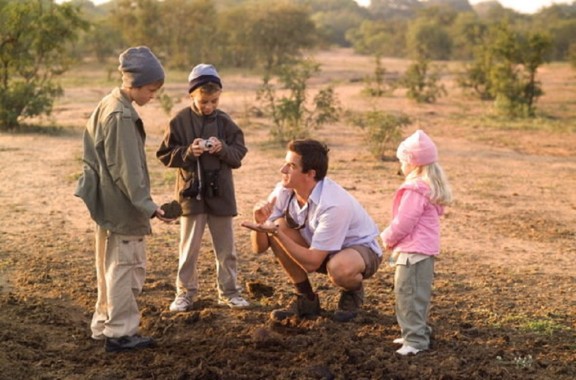
Here are just three essential environmental lessons that going on safari teaches your kids, as well as how you can implement them at home.
1. Ecosystems in Action
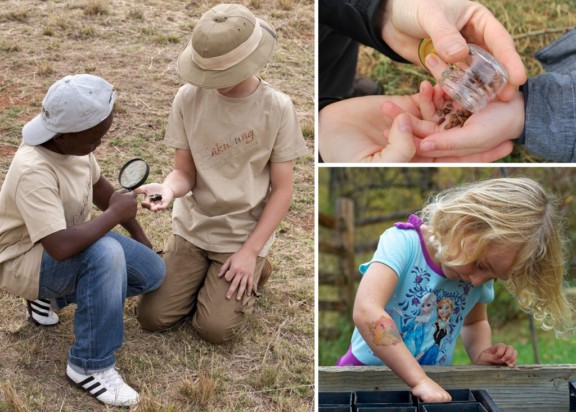
Earth is a system of interlocking ecosystems, and you may very well see every aspect of the circle of life when out on safari.
There is nothing like seeing animals interacting in their natural habitat to teach your child how everything is connected, and why protecting even the smallest member of an ecosystem preserves the whole.
Once your children know what to look for, they can observe-and-conserve ecosystems in your own backyard too. Though there may not be dung beetles, there should certainly be bees. As the key pollinators for a significant portion of plant life worldwide, bees are foundational members of global ecosystems and are easy to support at home in your own garden.
2. Importance of Giving Animals Their Space
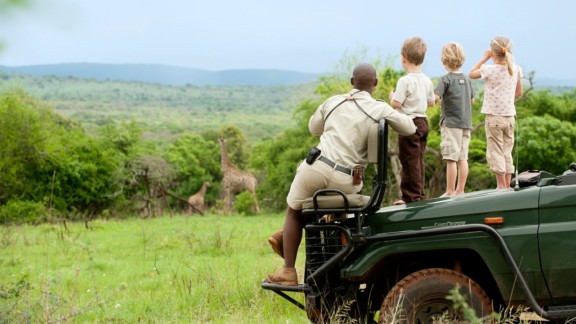
It’s one thing to read or watch documentaries about Africa’s magnificent wildlife – it’s entirely different to see them with your own eyes where they belong. It’s an experience never to be forgotten.
Encountering animals in their natural habitat teaches your child healthy respect for wildlife, as well as the importance of giving them the space to be wild. While the animals at home may not be as exotic as zebras or lions, the lessons learned on safari can easily be applied to your local environment. After all, all animals need their space.
As well as making your backyard a haven for bees, you can take steps to make it a habitat for many other local species. Your kids can think of it as their own mini reserve. Encourage your children to look back on their safari experience and look for parallels in their home nature reserve.
3. Eye for Biodiversity
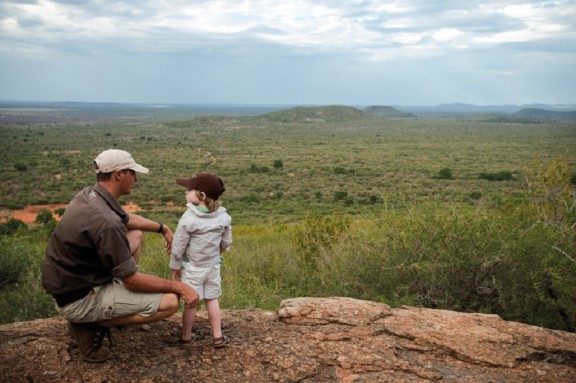
There’s far more to African wildlife than the Big 5. From giant millipedes to birds of prey, antelope to hyena – you’ll be witnesses to incredible biodiversity when on safari. Not only that, but by the end of your time in the bush every member of your family will have developed a keen eye for picking creatures out of camouflage. But thankfully, the excitement of seeing how many different animals you can spot doesn’t have to be left on the savanna.
Let your children keep their keen safari eyes in practice by taking family walking safaris in local parks or just around your neighbourhood. They’ll soon discover just how much biodiversity there is at home that needs protecting too.
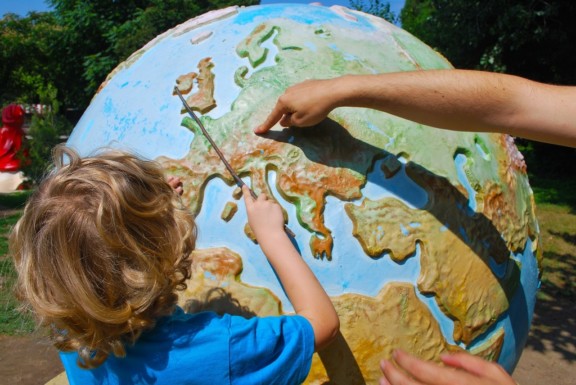
Embarking on an African safari is a life-altering experience at any age, but doing so as a child could spark a lifelong passion for conservation that can easily be transported and implemented at home.

This blogpost is beautifully insightful! I couldn’t agree more about the profound impact of seeing Africa’s magnificent wildlife in their natural environment; it’s an experience that awakens a deep sense of respect and awe for these creatures. The connection you drew between the safari experience and teaching children to value and respect local wildlife is very creative and thought-provoking.
Your suggestion of transforming our backyards into mini habitats for local species is ingenious. It offers such a practical yet impactful way to teach our children the importance of co-existing with nature and preserving biodiversity. This post has certainly inspired me to view my local environment through a new lens, and I believe it will do the same for many others. Keep up the amazing work!